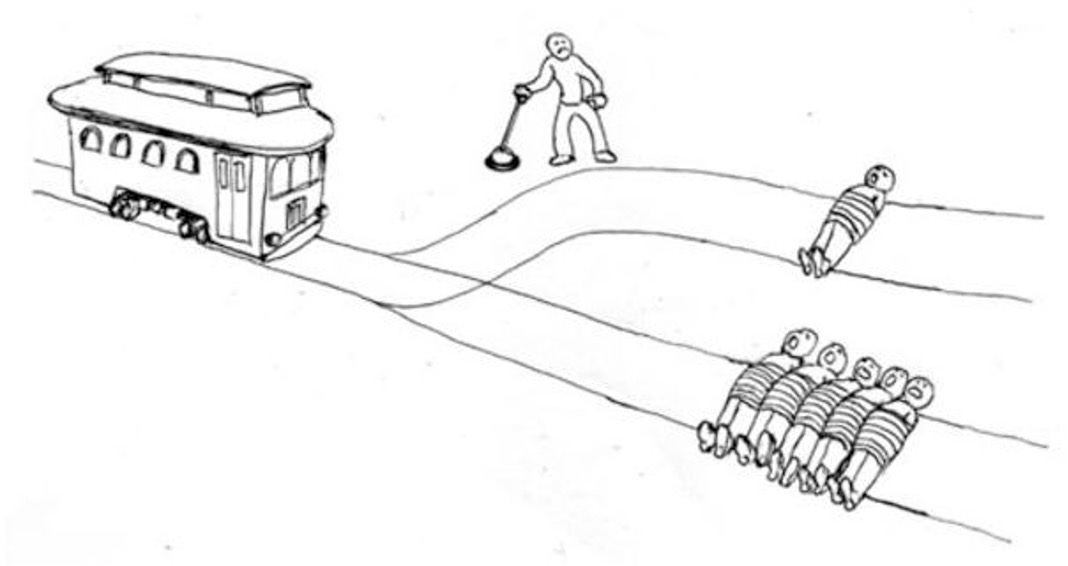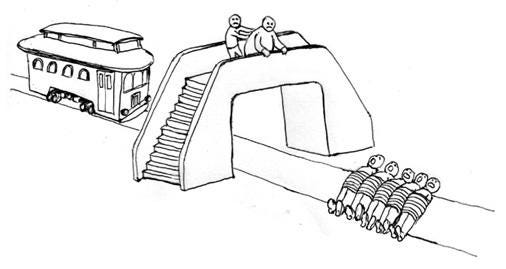Why I am Not an Effective Altruist
By Erik Hoel from The Intrinsic Perspective

Billions in funding, and with recent glowing cover stories in Time Magazine, The New Yorker and The New York Times, it’s clear that the creed of effective altruism is on the rise. When I talk to its proponents it has the aura of being almost too successful, as they often mention secret internecine wars and squabbles only those on the inside care about. It’s certainly a movement I’m asked about all the time, especially lately. And when I am, what first springs to my mind is Bertrand Russell’s 1927 lecture titled “Why I am not a Christian,” for it’s a speech that summarizes my feelings about effective altruism. This may seem like an odd analogy, or even (to some) an insulting one, since the two are so different. But to see what I mean about it springing to mind, here’s a passage from Russell’s speech, but with “Christianity” replaced with “effective altruism:”
Some people mean no more by it than a person who attempts to live a good life. In that sense I suppose there would be effective altruists in all sects and creeds; but I do not think that that is the proper sense of the word, if only because it would imply that all the people who are not effective altruists—all the Buddhists, Confucians, Mohammedans, and so on—are not trying to live a good life. I do not mean by an effective altruist any person who tries to live decently according to his lights. I think that you must have a certain amount of definite belief before you have a right to call yourself an effective altruist.
In his lecture Russell handily gives short reasons why the traditional official reasons for believing in Christianity—like the arguments from first cause, from natural law, or from design—simply don’t hold water. Furthermore, Russell argues that Christianity, despite cloaking itself in moral certitude, actually leads to immoral outcomes when its beliefs are taken literally:
Supposing that in this world that we live in today an inexperienced girl is married to a syphilitic man, in that case the Catholic Church says: ‘This is an indissoluble sacrament. You must stay together for life.’ And no steps of any sort must be taken by that woman to prevent herself from giving birth to syphilitic children. That is what the Catholic Church says. I say that that is fiendish cruelty, and nobody whose natural sympathies have not been warped by dogma, or whose moral nature was not absolutely dead to all sense of suffering, could maintain that it is right and proper that that state of things should continue.
You can buy Russell’s criticisms of Christianity or not, things have certainly changed since Russell’s day in many ways, at least in some places, and while I myself am not a practicing Christian I lack his anti-Christian vitriol. But my point is just to make an analogy: that what Russell saw in Christianity, which he thought was based on bad philosophical reasoning and concomitant immoral outcomes, are things I see in effective altruism, which ultimately makes the philosophy unattractive to me. This is not because of some trite metaphor wherein “effective altruism is the new religion” or anything like that—it is because it is based on initially flawed reasoning that when taken literally leads to immoral outcomes.
Note that effective altruism, having grown up in academia, has a lot of jargon (not that there’s anything wrong with that, sometimes jargon is necessary). I’m purposefully not going to use much of it, with the goal of (a) non-experts being able to follow along, and (b) the criticisms I’ll discuss don’t ultimately need a technical presentation. For despite the seemingly simple definition of just maximizing the amount of good for the most people in the world, the origins of the effective altruist movement in utilitarianism means that as definitions get more specific it becomes clear that within lurks a poison, and the choice of all effective altruists is either to dilute that poison, and therefore dilute their philosophy, or swallow the poison whole.
This poison, which originates directly from utilitarianism (which then trickles down to effective altruism), is not a quirk, or a bug, but rather a feature of utilitarian philosophy, and can be found in even the smallest drop. And why I am not an effective altruist is that to deal with it one must dilute or swallow, swallow or dilute, always and forever.

The current popularity of effective altruism is, I think, the outcome of two themselves popular philosophical thought experiments: the “trolley problem” and the “shallow pond.” Both are motivating thought pumps for utilitarian reasoning.
The trolley problem is a meme almost everyone knows at this point: a trolley is about to run over five people. Do you switch it to a different track with one person instead?

I remember first being introduced to the trolley problem in college (this was B.M., “Before Memes”). People were asked to raise our hands if we would pull the lever to switch the tracks, and the majority of people did. But then the professor gave another example: What if instead you have the opportunity to push an obese person onto the tracks, and you somehow have the knowledge that this would be enough slow the trolley and save the five? Most people in class didn’t raise their hands for this one.

Maybe all those people just didn’t have the stomach? That’s often the utilitarian reply, but the problem is that alternative versions of the deceptively simple trolley problem get worse and worse, and more and more people drop off in terms of agreement. E.g., what if there’s a rogue surgeon who has five patients on the edge of organ failure, and goes out hunting the streets at night to find a healthy person, drags them into an alley, slits their throat, then butchers their body for the needed organs? One for five, right? Same math, but frankly it’s a scenario that, as Russell said of forcing inexperienced girls to to bear syphilitic children: “. . . nobody whose natural sympathies have not been warped by dogma. . . could maintain that it is right and proper that that state of things should continue.”
The poison for utilitarianism is that it forces its believers to such “repugnant” conclusions, like considering an organ-harvesting serial killer morally correct, and the only method of avoiding this repugnancy is either to water down the philosophy or to endorse the repugnancy and lose not just your humanity, but also any hope of convincing others, who will absolutely not follow where you are going (since where you’re going is repugnant). The term “repugnant conclusion” was originally coined by Derek Parfit in his book Reasons and Persons, discussing how the end state of this sort of utilitarian reasoning is to prefer worlds where all available land is turned into places worse than the worst slums of Bangladesh, making life bad to the degree that it’s only barely worth living, but there are just so many people that when you plug it into the algorithm this repugnant scenario comes out as preferable.
To see the inevitability of the repugnant conclusion, consider the other popular thought experiment, that of the drowning child. Written in the wake of a terrible famine in Bengal, Peter Singer gives the reasoning of the thought experiment in his “Famine, Affluence, and Morality.”
. . . if I am walking past a shallow pond and see a child drowning in it, I ought to wade in and pull the child out. This will mean getting my clothes muddy, but this is insignificant, while the death of the child would presumably be a very bad thing. . . It makes no moral difference whether the person I can help is a neighbor's child ten yards from me or a Bengali whose name I shall never know, ten thousand miles away.
And all that sounds very good—who would not soil their clothes, or pay the equivalent of a dry cleaning bill, to save a drowning child? But when taken literally it leads, very quickly, to repugnancy. First, there’s already a lot of charity money flowing, right? The easiest thing to do is redirect it. After all, you can make the same argument in a different form: why give $5 to your local opera when it will go to saving a life in Bengal? In fact, isn’t it a moral crime to give to your local opera house, instead of to saving children? Or whatever, pick your cultural institution. A museum. Even your local homeless shelter. In fact, why waste a single dollar inside the United States when dollars go so much further outside of it? We can view this as a form of utilitarian arbitrage, wherein you are constantly trading around for the highest good to the highest number of people.
But we can see how this arbitrage marches along to the repugnant conclusion—what’s the point of protected land, in this view? Is the joy of rich people hiking really worth the equivalent of all the lives that could be stuffed into that land if it were converted to high-yield automated hydroponic farms and sprawling apartment complexes? What, precisely, is the reason not to arbitrage all the good in the world like this, such that all resources go to saving human life (and making more room for it), rather than anything else?
The end result is like using Aldous Huxley’s Brave New World as a how-to manual rather than a warning. Following this reasoning, all happiness should be arbitraged perfectly, and the earth ends as a squalid factory farm for humans living in the closest-to-intolerable conditions possible, perhaps drugged to the gills. And here is where I think most devoted utilitarians, or even those merely sympathetic to the philosophy, go wrong. What happens is that they think Parfit’s repugnant conclusion (often referred to as the repugnant conclusion) is some super-specific academic thought experiment from so-called “population ethics” that only happens at extremes. It’s not. It’s just one very clear example of how utilitarianism is constantly forced into violating obvious moral principles (like not murdering random people for their organs) by detailing the “end state” of a world governed under strict utilitarianism. But really it is just one of an astronomical number of such repugnancies. Utilitarianism actually leads to repugnant conclusions everywhere, and you can find repugnancy in even the smallest drop.



